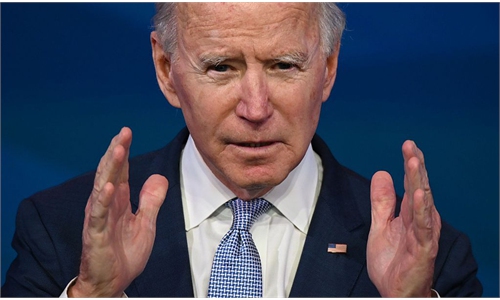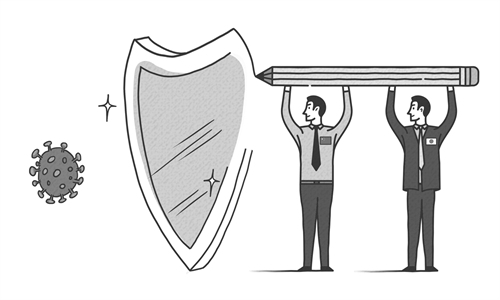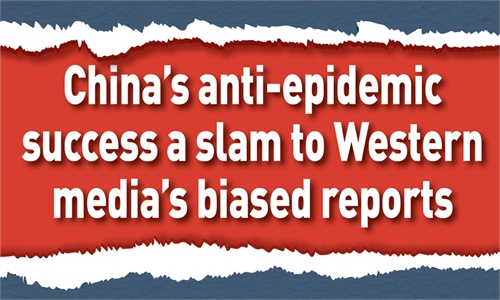Editor's Note:
Why has the West misunderstood and showed bias toward China's political system and economic development? As China is embracing the world and rising as an emerging power, more and more Chinese have felt such bias and hostility from the West, especially during the past year, on various issues from the COVID-19 pandemic to China-US frictions. Renowned scholar Zheng Yongnian has written a new book, Market in State: The Political Economy of Domination in China, to respond to some questions about China's economic system from a historical perspective. Zheng, who is also Presidential Chair Professor and Director of The Advanced Institute of Global and Contemporary China Studies at the Chinese University of Hong Kong (Shenzhen), shared his views on these issues with Global Times reporter Bai Yunyi, deconstructing those misinterpretations about China.
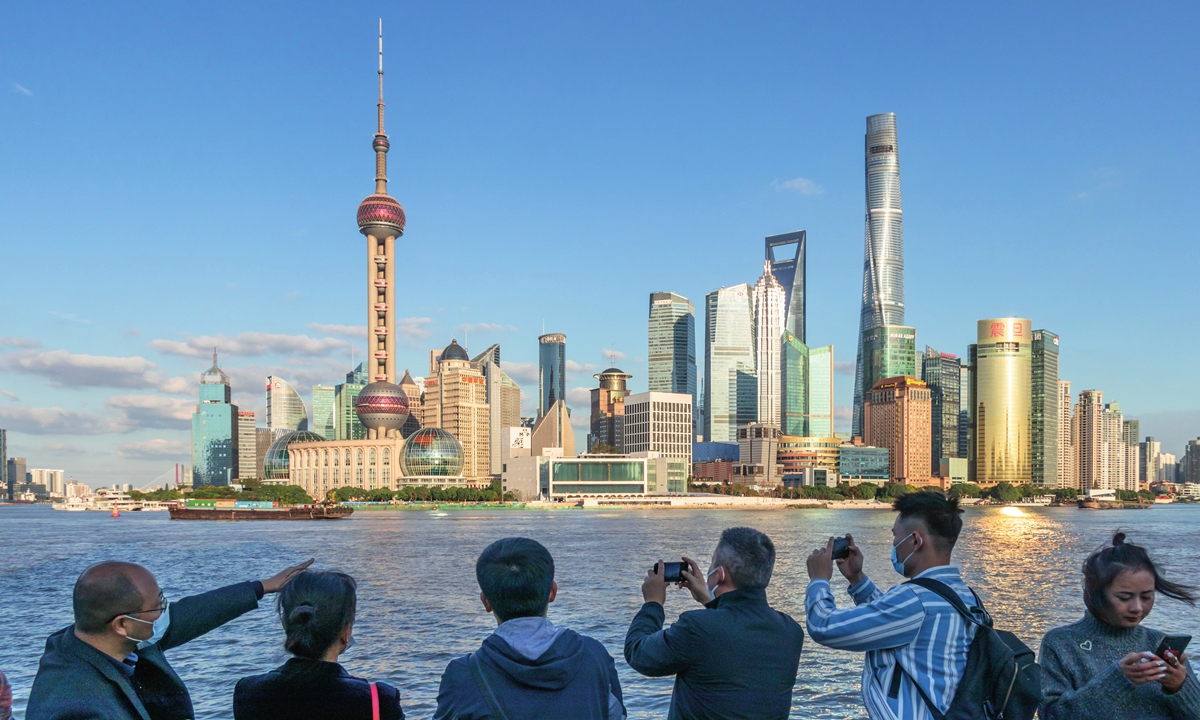
GT: In your new book Market in State: The Political Economy of Domination in China, you have mentioned that there is widespread misunderstanding of China's political system in the West, thinking that it's oriental absolutism or authoritarianism. Why do you think this view is wrong and biased?
Zheng: Since the time of Aristotle, the West began to understand the East. However, they have always regarded the East as a different and opposite existence from themselves until today. At first, the West used "orientalism" to describe the East. Later, there were terms such as "oriental despotism" and "authoritarianism." Even the concept of geography is based on a Eurocentric perspective, separating the Near East, the Middle East, and the Far East. In short, the "East" is different from the "West."
This is actually related to the methodology used by Western thinkers to treat the East. They often use an "ideal type" or a "dichotomy" to treat the institutional differences between the East and the West, such as democracy and autocracy, freedom and slavery, modernity and tradition, etc., that is to say, they construct their own theories with two opposing concepts. Therefore, guided by this thinking, it is natural for the West to see itself as a democracy and the East as an autocracy. To see oneself as white, so others are black.
But is this the case in the real world? Obviously not. In reality, it is hard to find an "ideal type" of democracy, or an "ideal type" of autocracy proposed by scholars in the West. There is neither absolute democracy nor absolute autocracy. Between black and white, there are many colors. It is difficult for Chinese people to accept such "dichotomy," for we pay more attention to moderation and balance.
The second problem with this thinking is that it is a static perspective which ignores changes. A mainstream view in the West is that China has been in "oriental absolutism" for a long time and would not evolve, believing that China only has a cycle of dynastic rise and fall and has no history of evolution. This is actually the West's own misunderstanding of Chinese history, treating the continuity of Chinese civilization as unchanged from its own perspective, especially when the West has experienced revolutionary changes from the ancient Greek civilization to Roman civilization, from religious civilization to modern industrial society.
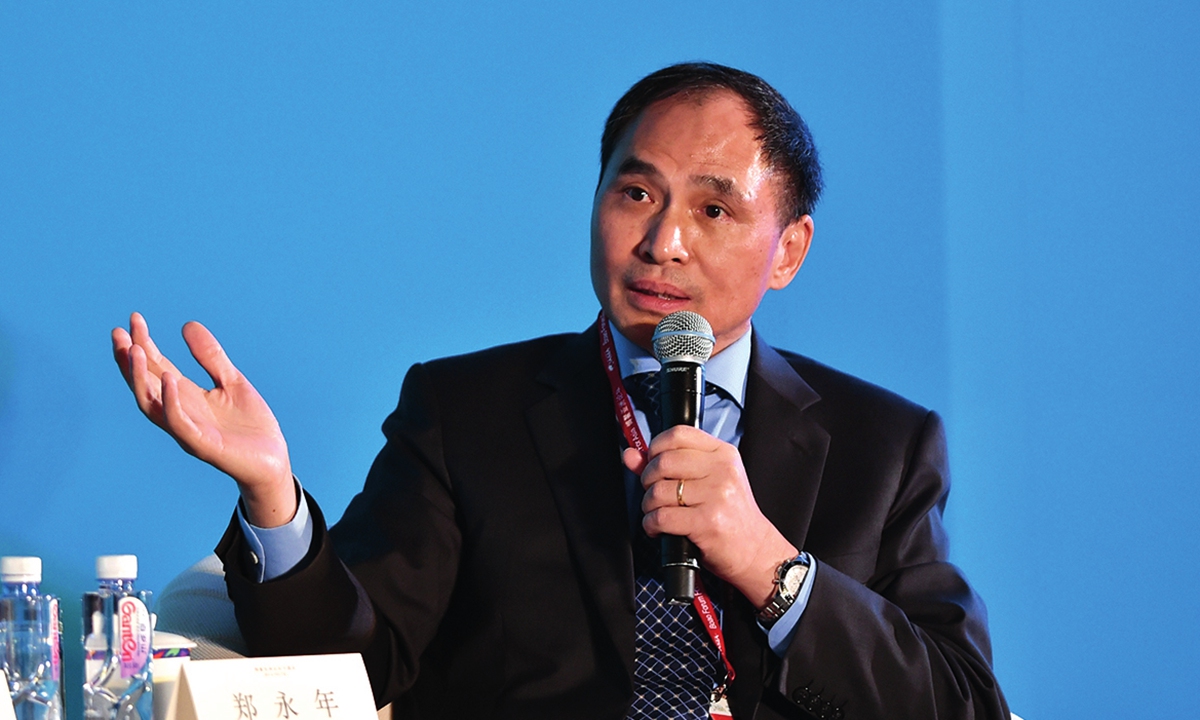
GT: Many Western scholars believe that China is "state capitalism." What do you think of this view?
Zheng: China's economy is "state capitalism," which is also a classic misinterpretation of China by many Western scholars. In fact, from the Han Dynasty to the present day, China's economic system has consisted of three tiers of markets.
At the top are the state-owned sector and the market. In China, the state and the economy have long been seen as inseparable, which differs from modern Western ideology. The state is an important, if not the most important, economic player in the national economy, which is reflected in state's dominant role in certain industries such as salt and iron and the provision of large-scale infrastructure.
At the bottom is a large private economy dominated by small, medium and micro enterprises which grow through free trade and a system of division of labor.
The middle layer is the economic form of state-private sector interaction. For example, the state allows and encourages the private sector to participate in economic activities initiated by the state. From the modern model of "Government-supervision and Merchant-operation," to some very large private enterprises or enterprises with mixed ownership in China today, all belong to this category.
For most of China's history, these three tiers of the economy have been developed in a very balanced way. It is neither state capitalism nor free capitalism, but a mixed economy.
GT: With the advancement of China's reform and opening-up, in the increasingly globalized world, will China become a complete, Western-style economy in the future?
I don't think China will become a completely Western-style economy in the future, especially of the kind in the current Anglo-Saxon system. This is not only due to the unique history of East Asia, but also because our mixed economic model can produce higher governance efficiency.
The mixed economic model can help avoid periodic crises in a capital-dominated society, achieving sustainable growth and social stability. American companies have made the most profits in the era of hyper-globalization, but there was no sustainable social stability because wealth and social divergence are too great. Absolutely, capital and corporate competition may make the United States more efficient, but on the whole, I still think that the mixed economy model is better than the single capital-led model.
In fact, the development of Western society itself has proved this point: from the 1980s to the present, the world has indeed been dominated by neoliberalism, but don't forget, the most glorious era of Western development is the Keynesian era of "widespread government intervention in the economy" after the World War II. With the expansion of the welfare society, the middle class in the United States has expanded to 70 percent of its population. While after the 1980s, although economic efficiency has improved, the proportion of the middle class has fallen to 50 percent.
Therefore, from a longer historical perspective, neoliberalism is not necessarily a major trend. Economically, it is best if capital, society, and government be in a relatively balanced state. Politically, it is best if democracy and centralization are combined, as one-person-one-vote mass democracy is the simplest and least effective democracy.
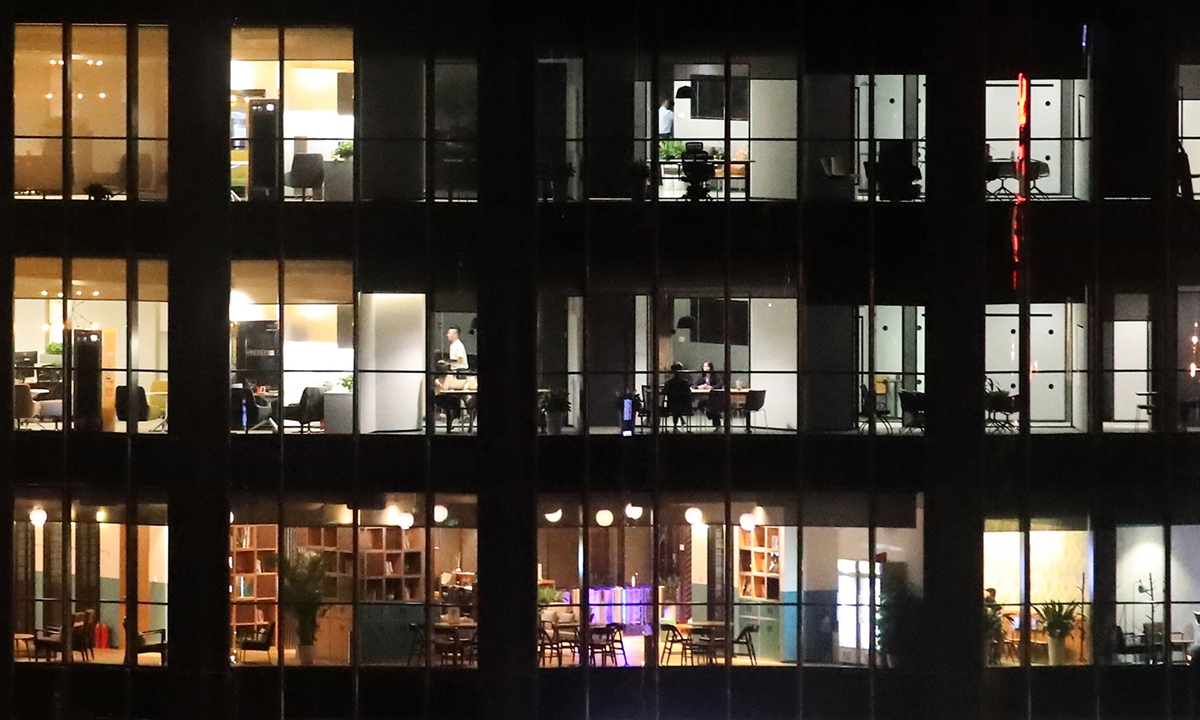
GT: With the rapid economic growth, China has also seen the emergence of a number of large "unicorn" private enterprises, and the emergence of a wealthy class and a middle class. What impact or challenge will this phenomenon bring to China's political and social structure in the future?
Zheng: I don't think we can simply apply a Western paradigm to China's situation and think that they are the bourgeoisie, which will have an impact on the political governance structure of China. Under Chinese civilization, it's almost impossible to happen.
Historically, in the Song Dynasty and many other periods, the private economy was strong but it never changed the state-led political and economic governance model. In reality, a lot of extra-large private enterprises today have developed under national policy encouragement. If we look at East Asian societies, in countries such as Japan and Singapore, the emerging class is also the product of government policies.
In addition, China's middle class and emerging class are highly consistent with the governing body, and without intention to "grab power" like business groups in the West. If we simply use the Western paradigm to mechanically understand China's classes, we will reach the wrong conclusion.
GT: How China should deal with the emergence of large and even monopolistic private enterprises? Some Western opinion suggests China is suppressing private enterprises. What do you think of this argument?
Zheng: China is strengthening the supervision of large private enterprises, and one of the important elements is anti-monopoly. When an enterprise can obtain huge benefits through a monopoly, it will not only lack the motivation to continue to grow, but also stifle newly created enterprises. Therefore, anti-monopoly policies are necessary.
However, many people have a limited understanding and think the only way to deal with a monopoly is to split large enterprises, but this is not the case. Judging from the experience of Europe and the US, many industries will continue to produce "natural" monopolies after anti-monopoly measures, and similar situations will occur in the aircraft and automobile fields. So breaking up Microsoft has been discussed for many years, but the US government has not split Microsoft, but forced it to be open. But now there are problems with the "open" option, that is, newcomers either rely on these large platforms or die, so the US is now considering whether it is not open enough.
For China, it is more creative to think about how to guide the development of these large enterprises, rather than simply breaking them up. If a company is to be strong, it will definitely become bigger, and if it is too small, it will not be able to do many things. But the key is: what do you do when you grow up? For example, when some internet technology companies have technology and massive data, how to continue to "go up" in technology and industry, this is the direction that needs the guidance of the government.
We also need to consider it at the international level. China's large high-tech companies are facing a more severe situation. Under the suppression of the US, even survival is not very optimistic. At this level, what the government needs to do is to encourage these large private companies to go out, compete and cooperate, and help them participate in the formulation of international industry rules and expand their voice in the world. In short, when supervising super-large private "unicorn" enterprises, the government should not adopt overly populist methods and simply split them.

GT: Let's look at the unique political and economic model of China you proposed from specific examples. Does China's response to the COVID-19 epidemic reflect the characteristics of its governance methods? Is China really relying on "authoritarian methods" or "traditional collectivism" to fight the epidemic, as many in the West believe?
Zheng: First of all, what is authoritarian? Modern society is originally organized by power, but some are organized by political power, and some are organized by capital power.
Western countries actually use capital power to cover up the problem of social power organization: China is governed by the power of political parties, but in the US and other countries,the political families exercise significant political power. And there are also centralized powers in Western democratic societies. For example, the president of the US enjoys amazing power.
The second question is: is China authoritarian? Many people in the West criticize China for suppressing social organizations, but in this epidemic, how much work is done by social organizations and how many entrepreneurs have played a role in it. The difference is that in the West, the government and society act independently, sometimes even in opposition, while the Chinese government and society are in a coordinated relationship. The same is true for the relationship between the central and local governments. China's central and local governments are also in an efficient and coordinated relationship, which is very different from the relationship between the federal and state governments in the US.
Ultimately, this is still a question of methodology. If the West cannot break out of the "dichotomy" and use its own set of standards to look at China, it will be difficult to truly understand China.
GT: Judging from the pandemic and the chaos after the US election, what new challenges is the US neoliberal political and economic model facing?
Zheng: The US is already facing a very obvious crisis, the most obvious of which is the widening gap between the rich and the poor. From a historical point of view, Europe and the US first experienced what Marx called primitive capitalism. Later, the emergence of European socialist movements promoted the transformation of European and American societies to welfare capitalism and to a large extent solved those problems.
However, today, the US has encountered a similar situation again. In the globalization era of the past 40 years, although the US has profited the most, only a small percentage of people have enjoyed such benefits. The wealth of capital has not become the wealth of the country nor the wealth of the people. I remember when I was studying in the US, Americans used to proudly tell me, "We are a middle-class society," but now the US has become a "plutocracy." This is a problem that needs to be solved.
In politics, everyone used to say that "one person, one vote" was the ideal of modern liberalism, because everyone can participate in politics. But the question that needs to be pondered is: what is the goal of "one person, one vote"? We say that the "one vote" in the hands of a citizen guarantees that their interests will be represented. In this sense, this system is indeed a milestone in human progress. But can this system be sustainable?
In the past, Singapore's Lee Kuan Yew said that democracy with one person, one vote is a welfare auction, that is, whoever bids the most, wins the most votes. On the other hand, "one person, one vote" can guarantee everyone one stake, but there is no mechanism to ensure that everyone contributes one stake. Before the rise of neoliberalism in the 1980s, most Western governments still had economic sovereignty, allowing the rich to contribute a few more shares, and then to balance the distribution through taxation. However, in the era of globalization, increasing the tax rate, people will "run away" and go to places with lower tax rates.
I think the US and some other Western countries need an economic structural adjustment to solve this problem. I don't think the US will develop a state-owned sector like China, but the US government needs to play a greater role and needs to establish a more balanced relationship with capital. This is a general trend. To promote such changes, the US today has the right economic conditions, but not the political conditions. Trump's populist policy is not a solution to American problems. It will only divide the US even more.
Why has the West misunderstood and showed bias toward China's political system and economic development? As China is embracing the world and rising as an emerging power, more and more Chinese have felt such bias and hostility from the West, especially during the past year, on various issues from the COVID-19 pandemic to China-US frictions. Renowned scholar Zheng Yongnian has written a new book, Market in State: The Political Economy of Domination in China, to respond to some questions about China's economic system from a historical perspective. Zheng, who is also Presidential Chair Professor and Director of The Advanced Institute of Global and Contemporary China Studies at the Chinese University of Hong Kong (Shenzhen), shared his views on these issues with Global Times reporter Bai Yunyi, deconstructing those misinterpretations about China.

Shanghai Photo: IC
GT: In your new book Market in State: The Political Economy of Domination in China, you have mentioned that there is widespread misunderstanding of China's political system in the West, thinking that it's oriental absolutism or authoritarianism. Why do you think this view is wrong and biased?
Zheng: Since the time of Aristotle, the West began to understand the East. However, they have always regarded the East as a different and opposite existence from themselves until today. At first, the West used "orientalism" to describe the East. Later, there were terms such as "oriental despotism" and "authoritarianism." Even the concept of geography is based on a Eurocentric perspective, separating the Near East, the Middle East, and the Far East. In short, the "East" is different from the "West."
This is actually related to the methodology used by Western thinkers to treat the East. They often use an "ideal type" or a "dichotomy" to treat the institutional differences between the East and the West, such as democracy and autocracy, freedom and slavery, modernity and tradition, etc., that is to say, they construct their own theories with two opposing concepts. Therefore, guided by this thinking, it is natural for the West to see itself as a democracy and the East as an autocracy. To see oneself as white, so others are black.
But is this the case in the real world? Obviously not. In reality, it is hard to find an "ideal type" of democracy, or an "ideal type" of autocracy proposed by scholars in the West. There is neither absolute democracy nor absolute autocracy. Between black and white, there are many colors. It is difficult for Chinese people to accept such "dichotomy," for we pay more attention to moderation and balance.
The second problem with this thinking is that it is a static perspective which ignores changes. A mainstream view in the West is that China has been in "oriental absolutism" for a long time and would not evolve, believing that China only has a cycle of dynastic rise and fall and has no history of evolution. This is actually the West's own misunderstanding of Chinese history, treating the continuity of Chinese civilization as unchanged from its own perspective, especially when the West has experienced revolutionary changes from the ancient Greek civilization to Roman civilization, from religious civilization to modern industrial society.

Zheng Yongnian photo: Xinhua
GT: Many Western scholars believe that China is "state capitalism." What do you think of this view?
Zheng: China's economy is "state capitalism," which is also a classic misinterpretation of China by many Western scholars. In fact, from the Han Dynasty to the present day, China's economic system has consisted of three tiers of markets.
At the top are the state-owned sector and the market. In China, the state and the economy have long been seen as inseparable, which differs from modern Western ideology. The state is an important, if not the most important, economic player in the national economy, which is reflected in state's dominant role in certain industries such as salt and iron and the provision of large-scale infrastructure.
At the bottom is a large private economy dominated by small, medium and micro enterprises which grow through free trade and a system of division of labor.
The middle layer is the economic form of state-private sector interaction. For example, the state allows and encourages the private sector to participate in economic activities initiated by the state. From the modern model of "Government-supervision and Merchant-operation," to some very large private enterprises or enterprises with mixed ownership in China today, all belong to this category.
For most of China's history, these three tiers of the economy have been developed in a very balanced way. It is neither state capitalism nor free capitalism, but a mixed economy.
GT: With the advancement of China's reform and opening-up, in the increasingly globalized world, will China become a complete, Western-style economy in the future?
I don't think China will become a completely Western-style economy in the future, especially of the kind in the current Anglo-Saxon system. This is not only due to the unique history of East Asia, but also because our mixed economic model can produce higher governance efficiency.
The mixed economic model can help avoid periodic crises in a capital-dominated society, achieving sustainable growth and social stability. American companies have made the most profits in the era of hyper-globalization, but there was no sustainable social stability because wealth and social divergence are too great. Absolutely, capital and corporate competition may make the United States more efficient, but on the whole, I still think that the mixed economy model is better than the single capital-led model.
In fact, the development of Western society itself has proved this point: from the 1980s to the present, the world has indeed been dominated by neoliberalism, but don't forget, the most glorious era of Western development is the Keynesian era of "widespread government intervention in the economy" after the World War II. With the expansion of the welfare society, the middle class in the United States has expanded to 70 percent of its population. While after the 1980s, although economic efficiency has improved, the proportion of the middle class has fallen to 50 percent.
Therefore, from a longer historical perspective, neoliberalism is not necessarily a major trend. Economically, it is best if capital, society, and government be in a relatively balanced state. Politically, it is best if democracy and centralization are combined, as one-person-one-vote mass democracy is the simplest and least effective democracy.

People are working late in an office building in Beijing. Photo: VCG
GT: With the rapid economic growth, China has also seen the emergence of a number of large "unicorn" private enterprises, and the emergence of a wealthy class and a middle class. What impact or challenge will this phenomenon bring to China's political and social structure in the future?
Zheng: I don't think we can simply apply a Western paradigm to China's situation and think that they are the bourgeoisie, which will have an impact on the political governance structure of China. Under Chinese civilization, it's almost impossible to happen.
Historically, in the Song Dynasty and many other periods, the private economy was strong but it never changed the state-led political and economic governance model. In reality, a lot of extra-large private enterprises today have developed under national policy encouragement. If we look at East Asian societies, in countries such as Japan and Singapore, the emerging class is also the product of government policies.
In addition, China's middle class and emerging class are highly consistent with the governing body, and without intention to "grab power" like business groups in the West. If we simply use the Western paradigm to mechanically understand China's classes, we will reach the wrong conclusion.
GT: How China should deal with the emergence of large and even monopolistic private enterprises? Some Western opinion suggests China is suppressing private enterprises. What do you think of this argument?
Zheng: China is strengthening the supervision of large private enterprises, and one of the important elements is anti-monopoly. When an enterprise can obtain huge benefits through a monopoly, it will not only lack the motivation to continue to grow, but also stifle newly created enterprises. Therefore, anti-monopoly policies are necessary.
However, many people have a limited understanding and think the only way to deal with a monopoly is to split large enterprises, but this is not the case. Judging from the experience of Europe and the US, many industries will continue to produce "natural" monopolies after anti-monopoly measures, and similar situations will occur in the aircraft and automobile fields. So breaking up Microsoft has been discussed for many years, but the US government has not split Microsoft, but forced it to be open. But now there are problems with the "open" option, that is, newcomers either rely on these large platforms or die, so the US is now considering whether it is not open enough.
For China, it is more creative to think about how to guide the development of these large enterprises, rather than simply breaking them up. If a company is to be strong, it will definitely become bigger, and if it is too small, it will not be able to do many things. But the key is: what do you do when you grow up? For example, when some internet technology companies have technology and massive data, how to continue to "go up" in technology and industry, this is the direction that needs the guidance of the government.
We also need to consider it at the international level. China's large high-tech companies are facing a more severe situation. Under the suppression of the US, even survival is not very optimistic. At this level, what the government needs to do is to encourage these large private companies to go out, compete and cooperate, and help them participate in the formulation of international industry rules and expand their voice in the world. In short, when supervising super-large private "unicorn" enterprises, the government should not adopt overly populist methods and simply split them.

Residents in Shenyang, Northeast China's Liaoning Province, line up for coronavirus nucleic acid testing on Monday. The city kicked off a third round of testing on Monday in three local districts, with a total of 38 positive cases reported in Shenyang for far. Photo: cnsphoto
GT: Let's look at the unique political and economic model of China you proposed from specific examples. Does China's response to the COVID-19 epidemic reflect the characteristics of its governance methods? Is China really relying on "authoritarian methods" or "traditional collectivism" to fight the epidemic, as many in the West believe?
Zheng: First of all, what is authoritarian? Modern society is originally organized by power, but some are organized by political power, and some are organized by capital power.
Western countries actually use capital power to cover up the problem of social power organization: China is governed by the power of political parties, but in the US and other countries,the political families exercise significant political power. And there are also centralized powers in Western democratic societies. For example, the president of the US enjoys amazing power.
The second question is: is China authoritarian? Many people in the West criticize China for suppressing social organizations, but in this epidemic, how much work is done by social organizations and how many entrepreneurs have played a role in it. The difference is that in the West, the government and society act independently, sometimes even in opposition, while the Chinese government and society are in a coordinated relationship. The same is true for the relationship between the central and local governments. China's central and local governments are also in an efficient and coordinated relationship, which is very different from the relationship between the federal and state governments in the US.
Ultimately, this is still a question of methodology. If the West cannot break out of the "dichotomy" and use its own set of standards to look at China, it will be difficult to truly understand China.
GT: Judging from the pandemic and the chaos after the US election, what new challenges is the US neoliberal political and economic model facing?
Zheng: The US is already facing a very obvious crisis, the most obvious of which is the widening gap between the rich and the poor. From a historical point of view, Europe and the US first experienced what Marx called primitive capitalism. Later, the emergence of European socialist movements promoted the transformation of European and American societies to welfare capitalism and to a large extent solved those problems.
However, today, the US has encountered a similar situation again. In the globalization era of the past 40 years, although the US has profited the most, only a small percentage of people have enjoyed such benefits. The wealth of capital has not become the wealth of the country nor the wealth of the people. I remember when I was studying in the US, Americans used to proudly tell me, "We are a middle-class society," but now the US has become a "plutocracy." This is a problem that needs to be solved.
In politics, everyone used to say that "one person, one vote" was the ideal of modern liberalism, because everyone can participate in politics. But the question that needs to be pondered is: what is the goal of "one person, one vote"? We say that the "one vote" in the hands of a citizen guarantees that their interests will be represented. In this sense, this system is indeed a milestone in human progress. But can this system be sustainable?
In the past, Singapore's Lee Kuan Yew said that democracy with one person, one vote is a welfare auction, that is, whoever bids the most, wins the most votes. On the other hand, "one person, one vote" can guarantee everyone one stake, but there is no mechanism to ensure that everyone contributes one stake. Before the rise of neoliberalism in the 1980s, most Western governments still had economic sovereignty, allowing the rich to contribute a few more shares, and then to balance the distribution through taxation. However, in the era of globalization, increasing the tax rate, people will "run away" and go to places with lower tax rates.
I think the US and some other Western countries need an economic structural adjustment to solve this problem. I don't think the US will develop a state-owned sector like China, but the US government needs to play a greater role and needs to establish a more balanced relationship with capital. This is a general trend. To promote such changes, the US today has the right economic conditions, but not the political conditions. Trump's populist policy is not a solution to American problems. It will only divide the US even more.
